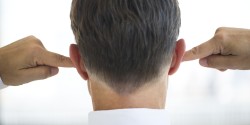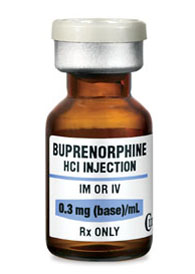With today’s world of short wait-times and drive-by services, it’s not uncommon for someone entering addiction treatment to be seeking a cure rather than a healing process. Addiction, whether drugs or alcohol, has long-terms effect on the body and mind; effects that can persist long after drug use ends. For this reason, addiction recovery and relapse tend to go hand-in-hand as relapse episodes ultimately become part of the overall addiction recovery process.
Anyone who’s experienced relapse well knows how discouraging and frustrating it can be considering all the work he or she has put into getting well. Giving up at this point can definitely cause more harm than good in more ways than one. In effect, “trying again” becomes part of the addiction recovery process no matter how many times a person finds him or herself at this point.
Addiction’s Effects
Physical Changes

Relapse is common during addiction recovery and can be very disheartening.
Addiction causes physical changes in how the brain and body function. By the time a person enters recovery, the effects of drug abuse have become a “normal” part of the body’s overall chemical and functional makeup.
According to the Journal of European Psychopharmacology, addiction is classified as a chronic relapsing disease that operates in much the same way as any other chronic medical condition, such as diabetes or asthma. Chronic conditions, in any form, require long-term maintenance and management as the physical changes that result essentially “rewire” how the body and mind work.
Psychological Changes
Much of the difficulty and challenges encountered in addiction recovery have to do with the psychological aftereffects of drugs on a person’s mind. In essence, addiction develops out of damage done to the brain’s reward system. This area of the brain defines a person’s priorities, motivations and daily outlook based on positive reinforcing experiences had from day to day.
According to the U. S. National Library of Medicine, positive experiences trigger the release of dopamine in the brain, the primary neurotransmitter involved in brain reward system functions. Addictive substances, like drugs and alcohol, also stimulate dopamine production in the brain, which accounts for the drastic change in priorities addiction causes in a person’s life.
With addiction recovery and relapse, a person fights an ongoing battle between drug-based reward system norms and rules versus recovery-based norms and rules. Ultimately, the day-to-day process of “living” drug-free becomes the only means for erasing addiction-based programming from the brain reward system’s records.
Relapse Episodes
As disheartening as relapse episodes can be, they nonetheless offer valuable information in terms of what works and what doesn’t work in your addiction recovery process. More often than not, the seeds of relapse take root within a person’s thinking patterns and behaviors, long before the actual relapse event occurs. Understanding how and why this change in mindset occurred can go a long way towards avoiding relapse in the future.
Drug Treatment Considerations
Oftentimes, addiction recovery requires a person to engage in some form of ongoing treatment for months or even years after drug use ends. Whether it be individual psychotherapy, group therapy or support group work, staying engaged in the addiction recovery process offers the only means for getting comfortable with a drug-free lifestyle.
If you or someone you know struggles with addiction recovery and relapse and have questions about recovery treatment options, please feel free to call our toll-free helpline at 800-934-1582(Sponsored) for more information. Our addictions specialists can also help connect you with treatment services in your area.
Regardless of your addiction, it is the duty of the doctor to help you. So yes your doctor will still help you if you are addicted to heroin or any other narcotic. Most doctors have some training in treating addictions, but will defer to an addiction specialist for some cases. There are doctors and counselors that specialize in the different types of addiction and many that specialize in heroin addiction alone.
Doctor Recommendations
Although your doctor might not treat you for your heroin addiction himself or herself, they will offer recommendations. They know your medical history and may even understand the underlying cause of your addiction. This is why it is important to be honest with your doctor. He will base his recommendations on:
- Your medical history
- Your personal history
- Your latest physical
- Your current symptoms
The doctors job is to help you find treatment for your addiction or at least help you understand it. There are many programs out there for heroin addiction.
Types of Treatment

A doctor is required to help you, no matter what your addiction is.
Specific courses of treatment depend on the type and level of your addiction. According to the National Institute on Drug Abuse, some of the things that doctors and therapists use to treat heroin addiction are:
- Individual counseling
- Group counseling
- Medication management
- Medication replacement
- Holistic medicine
- Acupuncture
- Yoga and exercise
- Herbal medicine
- Holistic therapies
Each of these treatments are available in one of three ways. These ways are:
- Inpatient treatment – this is a residential form of treatment that you stay at while you are in withdrawal and are recovering from your addiction. There are both long and short term treatment centers to cater to both the addiction and your room and board.
- Outpatient treatment – this is nonresidential treatment. You stay at home during this treatment and go to a treatment center periodically. You will go for counseling sessions, doctor’s appointments, and medication management.
- Combination treatment – this type of treatment involves both short term inpatient treatment and outpatient therapy. Once you go through detoxification, you go into an outpatient program. The outpatient program picks up where the inpatient treatment leaves off.
Which of these treatments you choose depends on what type of treatment best suits you and your addiction needs. If you have a job or school to go to, then outpatient treatment is the best for you. If you have many triggers or drug users at home, inpatient might be better for you.
A Word on Withdrawal
Many medications help you through the withdrawal symptoms if you need them. These medications are:
- Methadone
- Suboxone
- Buprenorphine
- Naltrexone
Although some doctors can prescribe these medications, general practitioners usually cannot. It takes a specially certified doctor in order to prescribe many of the medications used to treat addiction. These medications help you through the worst of withdrawal and can solve some of the problems if you have a chronic pain condition.
Where to Find Help
You can find help by calling 800-934-1582(Sponsored) . We can provide you with information on heroin addiction treatment, addiction specialists, and treatment centers.
While some people are familiar with Oxycontin for all the right reasons, others realize that they have a serious problem. When this drug is abused, it is easy for a person to become addicted. And if this happens, it is not nearly as simple to regain control of your life.
Just the same as any drug, there are many dangers associated with Oxycontin addiction. It doesn’t matter if you are facing this problem yourself or helping a loved one, you should fully realize just how serious it is.
Once you have a clear understanding of the dangers and risks, you may be more likely to take the right steps towards a better future.
The Problem with Oxycontin Addiction
There is nothing wrong with taking Oxycontin as prescribed by a doctor. This drug has been proven effective for pain management, which is why so many people take it, such as following a surgical procedure.
Conversely, there are also people who like the way that Oxycontin makes them feel. This holds true even when they are not in pain. For this reason, they continue to take the drug, day after day, without any regard for their mental or physical well being.
The dangers of untreated Oxycontin addiction run deep. Some of the things you need to be aware of include:

Oxycontin abuse can cause dizziness, dry mouth, and headaches.
1. Oxycontin addiction can lead to the abuse of other drugs. This is not always the case, but it can definitely happen. If you continue to take this drug, you may soon find yourself associating with those who abuse other narcotics.
It is dangerous enough to abuse Oxycontin, but if you mix in other drugs and/or alcohol, the chance of causing damage to your body is much greater. The same holds true for an overdose.
2. Negative impact on your personal life. Many people believe they can take Oxycontin when they want, and also stop when they want. This is not typically the case. Once you are hooked on this drug, it can be a challenge to return to your normal life.
The more you use Oxycontin the more symptoms you will be dealing with. Some of these are related to your mental state. For example, Oxycontin abuse often causes mood swings, depression, and bouts of irritability. As a result, you may find it difficult to keep your family and work life in order.
3. Physical harm. Just because a doctor can prescribe Oxycontin does not mean it has not physical impact on your body. When you take this drug as prescribed, you are under the watchful eye of a doctor. They are making sure you don’t do anything that will cause more harm than good.
When you take this drug on your own, however, you never know if you are pushing the limit. There may come a point when you are ingesting more Oxycontin than your body can handle, thus leading to a variety of health concerns. Some of the physical impacts of Oxycontin abuse include: hypertension, dizziness, respiratory depression, dry mouth, and headache.
4. Overdose. It is easy to believe that you can take as much Oxycontin as you want without overdosing. This is what gets people into trouble. If you believe this to be true, there may come a time when you find yourself in a bad spot.
The more Oxycontin you take the greater chance there is of an overdose. Unfortunately, many people have also died from taking too much Oxycontin at one time.
The Problem Continues
According to the United States Department of Justice, approximately nine percent of all adults in the United States have abused or will abuse an opioid narcotic, such as Oxycontin. Along with this, the same agency reports that more than 13 million people in the United States have used Oxycontin for recreational purposes. This has nothing to do with those taking the drug for medical reasons. Instead, it only takes into account recreational use.
With these statistics in mind, it is easy to see that Oxycontin abuse remains a major problem in the United States.
If you understand the dangers of addiction, you may realize that staying away from the drug would be in your best interest. In the event that a medical professional prescribes Oxycontin, make sure you know how much you should be taking and when to cease doing so.
There is no denying the fact that Oxycontin has a place as a prescription drug. On the same token, this medicine can cause a world of trouble for anybody who decides to take it without the guidance of a doctor.
There are many dangers of Oxycontin addiction, including death by overdose. If you or a loved one has fallen into the trap of abusing this drug, it is time to receive treatment. Putting this in the past would be in your best interest. Call us today at 800-934-1582(Sponsored) .
Narcotic addiction, that is addiction to opioid drugs both prescription and illicit, in pregnant patients must be treated carefully so as not to harm either the patient or the fetus. There are several methods used to treat this issue in patients of this type, and while it can involve a considerable amount of time and effort, results are beneficial as well as much safer than the continued abuse of narcotics or sudden abstinence from these drugs.
The Use of Medications as Narcotic Addiction Treatment in Pregnant Patients
Medications are extremely important during this time, as it is often more dangerous for pregnant individuals to stop taking opioids completely than for them to be maintained on a prescription medication. According to the Substance Abuse and Mental Health Services Administration, this method prevents withdrawal, and “withdrawal for pregnant women is especially dangerous because it causes the uterus to contract and may bring on miscarriage or premature birth.”

Methadone is the most accepted medication treatment for narcotic addiction in pregnant patients.
As stated by a SAMHSA study on medically assisted treatment for opioid addiction during pregnancy, “Methadone has been accepted since the late 1970s to treat opioid addiction during pregnancy.” It is safe for both the patient and the fetus, prevents withdrawal symptoms, helps the patient stop their abuse of dangerous narcotics, and does not cause euphoria when dosed properly. This medication is often recommended to most patients when going through narcotic addiction treatment during pregnancy.
Buprenorphine has not been approved to treat pregnant patients to the extent that methadone has, but the drug may still be used in certain circumstances. For example, when a patient has already been taking buprenorphine as a treatment for their narcotic addiction and becomes pregnant, they will often be recommended to stay on that medication in order to keep their body maintained in the same way. In addition, some patients refuse methadone and can instead be maintained on buprenorphine. Because the drug has not been as thoroughly researched in its effects on pregnancy, it isn’t normally the first choice for most physicians, but it may be right for some individual patients, given their situation.
The Use of Therapy as Narcotic Addiction Treatment in Pregnant Patients
Therapy is still extremely important as a part of an individual’s overall addiction treatment program, especially when pregnancy is involved. This can add a whole host of other issues for the patient that they must be able to work out in either an individual or group therapy regimen. In these sessions, they can learn to cope more easily with issues like cravings and triggers, so they can focus on being a good parent as well as on a strong recovery.
In addition, many programs provide nutrition classes, case management, couples therapy, and food assistance to those undergoing narcotic addiction treatment while pregnant. It is still important to ensure that the individual is healthy and able to achieve a strong recovery in addition to the other needs that stem from their pregnancy.
Are You Looking for Narcotic Addiction Treatment?
If you are pregnant, it will be much safer for you to attend professional addiction treatment if you are still struggling with narcotic addiction. If you have any questions or are seeking a treatment center in your area, call 800-934-1582(Sponsored) .
If your husband or wife is acting strange and you are not sure why, it could be an addiction. Stress at work, depression, chronic pain, and anxiety can all cause someone that you love to turn to drugs or alcohol. When they turn to substances to relieve these feelings, they often wind up with a nasty addiction. It is important to remember that you do not have to put up with addiction, but if you truly love the person you should try to help them.
Look for the Signs
It is important to make sure that your husband or wife is acting strangely because of their addiction to drugs. People who are addicted to drugs or alcohol show certain signs of that addiction. A few of these signs might be:

Secretive behavior and unexplained financial issues can be signs of an addiction.
- Suspicious or secretive behavior.
- Unusual phone calls or absences from home, work, or family gatherings.
- Unusual trips to the bathroom.
- Unexplained illnesses.
- Acting abnormally or out of character for them.
- Missing things from your home.
- You see them taking more than the needed amount of medication.
- Unexplained financial difficulties.
Talk to them About It
The first step is to talk to them about it. If you suspect they are using drugs, sit down with them and talk. Make sure your environment is calm and secure for both of you when you do it. It is also a good idea to talk to them when they are sober rather than when they are on the substance.
Sometimes there is a perfectly reasonable explanation for their behavior and other times it is in fact drug use that is causing it. By talking to them about it, you can show that you care and that you want them to seek treatment. It is important to not be judgmental or confrontational during this talk.
Talk to Someone who Can Help
Finding someone who can help you is also extremely important. When you are dealing with an addict, you will need support yourself. Find out about the addiction, what it causes, and how to help by talking to a professional.
There are addiction specialists and other professionals that can help guide you. They can show you how to help a person seek treatment and what to do if they refuse. You need to understand that not every drug addict will want treatment and many vehemently deny that they have a problem. Unfortunately in this situation there is not much you can do except for referring them to a professional or speaking to their doctor.
Find Help for Them
According to the National Institute on Drug Abuse, there are many treatment options available for those who are addicted to drugs or alcohol. Most of these treatments are now covered by insurance and are easily found. All you have to do is call 800-934-1582(Sponsored) . We can help you find the treatment that your husband or wife needs and answer any questions you might have about treatment for a specific addiction.
Narcotic addiction can sometimes be treated without medication, but in most cases, it is not the recommended route. This is because going through narcotic addiction treatment is extremely difficult, from the early withdrawal stage to even the later stages of recovery. It is a physically and mentally draining and painful process that is made much easier by the use of medications as treatment, and this option has been proven to help addicts avoid relapse and recover more fully. Still, there are some who prefer to be treated without the use of pharmaceuticals.
Why Do People Want to Go Through Narcotic Addiction Treatment Without Medication?

Some consider medication treatment a sign of weakness, and are therefore embarrassed to use it.
There are many reasons why a person might decide they would rather go through their addiction treatment without the use of medications. For one, there is still a strong stigma attached to the use of pharmaceuticals as an addiction treatment. According to a study from the Substance Abuse and Mental Health Services Administration, “Use of methadone and other therapeutic medications has been viewed traditionally as substitute therapy––merely replacing one addiction with another and the treatment of choice for those too weak to overcome temptation.” This is simply untrue, as the use of these medications does not cause serious consequences like the addictive use of narcotics does, and the need for one treatment option or another should never be equated with weakness.
Other individuals, after becoming addicted to prescription opioids, refuse to start another treatment regimen with the same type of drugs, feeling that they’d rather not have this issue occur again. This is an understandable feeling, but going through withdrawal and recovery without the use of any medications at all is often associated with more relapse and further issues than that which involves medication, in addition to also being much more painful because of intense withdrawal symptoms.
Can Narcotic Addiction Be Treated Without Medication?
According to the National Institute on Drug Abuse, “Treatment varies depending on the type of drug and the characteristics of the patients;” therefore, no one method is right for every patient. In some cases, narcotic addiction can be treated without medication, but it is important the individual who chooses this option understands that it will likely be much more difficult than if they were to use a pharmacological option as part of their overall treatment program.
Most doctors will recommend that patients recovering from opioid addiction receive some type of medication, especially during the early stages of withdrawal. But as long as you work with a physician in a safe, professional treatment program, you should be able to safely go through the process without the use of medication. It is important to remember, however, that you are going to have to be more aware of your needs during recovery as well as your potential for relapse.
As a recovering addict, it is always helpful to consider all of your treatment options and to choose the ones that will make it easiest and safest for you to recover. If you have more questions about opioid addiction recovery, call 800-934-1582(Sponsored) .
When you decide that you want treatment for drug addiction, there are a few questions you should ask the doctor who will be running your program. Most doctors will be able to easily provide answers for these questions or will refer you to someone who can.
1. What Kind of Treatment is Available?
According to the National Institute on Drug Abuse, there are a wide variety of treatment programs available for those who need it. A doctor that is also an addiction specialist should know about many of these types.
2. How does the Treatment Work?
One of the important things to know is how they expect the treatment to work. Most treatments work through detoxification and then counseling but some have other methods. How a treatment works will depend on the type of treatment.
3. What Kind of Studies Support the Treatment you want to Use?

Make sure your doctor is qualified to treat the underlying psychological or physiological cause of your addiction.
The treatment should be tested and based in fact. If it is not then it is an unproven method of recovery. Although some unproven methods occasionally work, you should know if there is some basis for it working.
4. Do you have Qualified Staff for this Treatment?
Always check the qualifications of the staff who is helping you with any type of treatment. In recent years there have been treatments administered by unqualified personnel that resulted in accidents. You need to make sure the staff is qualified.
5. How do you Qualify Success?
Qualifying success is also important. Ask what your doctor considers a success and what they consider a failure. Some programs have different requirements than others and it is important to know what these requirements are.
6. Do you Treat Psychological as well as Physiological Conditions that go along with Addiction?
Many addictions have a psychological cause. It is important to treat both the addiction as well as the underlying causes.
7. How do you Drug Test?
Drug testing during treatment is also important. Some tests are proven unreliable while others are not. This is a particularly good question if it is a teenager or younger person in treatment.
8. Do you use a Medical Approach?
This question is essentially to ascertain whether the treatment has a medical component involved. There are medications that help ease withdrawal and other symptoms of addiction as well as those that treat the psychological conditions behind addiction.
9. Do you Offer Aftercare?
Aftercare is extremely important. You will need supportive treatment even after the physical addiction is dealt with. A doctor should offer some form of aftercare or support after treatment. Usually aftercare involves counseling and other therapies.
10. Do you Accept my Insurance?
How to pay for treatment is always a concern. Knowing if your insurance will pay for the treatment or if you are relying on grants or other assistance is extremely important. If you have insurance that covers addiction treatment you will want to make sure it covers this particular treatment.
For more questions to ask or to find a treatment center or doctor that is right for you, call us at 800-934-1582(Sponsored) .
In spite of the “high” effects opiate abuse brings, these drugs drain the body’s vitality over time. Physical withdrawal episodes and disorientation most characterize the less favorable aspects of drug abuse, and yet addicts don’t seem to mind these discomforts as long as needed drug supplies remain available.
While this may seem like the worst aspect of addiction to the regular drug user, addiction per se has very little to do with the body’s need for the drug. By far, denial and the consequences that result become the worst aspects of an opiate addiction problem. According to the Florida Institute of Technology, denying that a drug problem exists is considered the hallmark of opiate addiction and addiction in general.
In effect, denial plays an essential role in supporting continued drug use. As physical withdrawal effects perpetuate continued drug use through the body, denial fulfills the same purpose within the mind. Unless some form of needed treatment help is sought out, a person will likely have to hit rock bottom before denial can be seen for what it is.
The Opiate Addiction Mindset

The opiate addiction mindset makes you focus on only the good feelings you achieve by using drugs, while ignoring the dangers.
The opiate addiction mindset has to do with the belief systems, emotional responses and behaviors that support an addiction problem. In effect, the addiction mindset creates a lifestyle that’s specifically tailored to a person’s ongoing drug needs, according to Stanford Medicine. Characteristics of this lifestyle may include:
- Scheduling your daily activities around getting needed drug supplies
- Putting aside a designated time for using drugs
- A social circle made up of like-minded individuals
- Lying to friends and loved ones to protect or hide one’s drug use
- Thinking about or obsessing over your next drug “fix”
Ultimately, the opiate addiction mindset dictates a person’s priorities and motivations within any given day.
The Purpose of Denial
Denial in opiate addiction develops out of the belief systems that form as opiate effects warp the brain’s cognitive functions. More specifically, denial works to camouflage the damaging effects of drugs, allowing a person to focus on the “benefits” of drug use, such as stress relief and feeling happy. Meanwhile, the brain chemical imbalances brought on by opiate abuse continue to worsen and further strengthen the mind’s denial mechanism. The longer a person continues to engage in drug abuse, the stronger denial becomes.
Consequences of Denying Opiate Addiction
Someone living with opiate addiction has essentially lost the ability to see the problems that result from drug use. Over time, a person’s life gradually falls apart due to his or her inability to acknowledge a drug problem exists.
Depending on a person’s life circumstances, the consequences that result from denial may take the form of:
- Job loss or problems at work
- Declining health
- Decline in mental health, such as feelings of depression or persistent anxiety
- Poor hygiene and grooming
- Financial difficulties
- Problems with the law, such as DUIs
- Relationship problems or losses
When to Seek Treatment
Once an opiate addiction problem reaches a certain point, a person may well have to hit rock bottom in order to see the problem for what it is. Events, such as divorce, personal tragedy or losing one’s home may have to take place before a person takes the necessary steps to get well. Confronting denial early on can help in avoiding much of the frustration and heartache opiate addiction breeds.
If you or someone you know struggles with opiate abuse and have further questions about addiction or need help locating a treatment program in your area, please don’t hesitate to call our toll-free helpline at 800-934-1582(Sponsored) to speak with one of our addiction counselors.
Prescription pain pills have come a long way since the days when morphine was the be-all and end-all for pain treatment. With dozens of different prescription types and potency levels available, most any type of pain symptom can be relieved by one or more prescription drug types.
Illegal opiates, such as heroin and opium have also undergone considerable “improvement” in terms of purity and potency levels. Unfortunately, the line between legal and illegal opiate varieties has blurred considerably in the eyes of the consumer.
Opiate drugs in general carry a high risk of abuse and addiction, with one drug easily stepping in for another when the need arises. In effect, the transition from prescription pain pills to heroin is nearly seamless due to the boldface similarities between these two drug types. While it’s never too soon to consider getting help in the face of an opiate abuse problem, the need for opiate addiction treatment becomes painfully apparent by the time a person starts to engage in heroin abuse.
Prescription Pain Pills vs. Heroin: Similarities & Differences

Heroin and pain pills have similar effects on the brain.
Prescription pain pills and heroin share many similarities and few differences. Both drug types derive from the opium poppy plant, and while many prescription pain medications are synthetically made, they’re nonetheless formulated to produce the same types of effects as opium.
When a person enters opiate addiction treatment, it doesn’t matter whether his or her drug of choice was legal or illegal; the effects remain the same. According to the National Institute on Drug Abuse, opiates, as a group, trigger the same chemical reactions in the brain, elevating neurotransmitter chemical levels and blocking incoming pain signals from reaching the brain.
Over time, these interactions leave brain cells in an increasingly deteriorated state, making them less sensitive to opiate effects. At this point, a person has to increase the dosage amount to experience the anticipated effects of the drug.
Herein lies the driving force behind opiate abuse and addiction as this cycle will continue for as long as a person keeps taking the drug. With this range of similarities, it’s easy to see how a person can transition from prescription pain pills to heroin in an effort to meet the brain’s increasing tolerance for opiate effects.
As far as differences go, the only difference between prescription pain pills and heroin has to do with their drug classifications. Prescription pain pills are controlled substances formulated to deliver certain measured effects, whereas heroin can vary in potency level and effect from batch to batch.
Today’s Heroin
In general, heroin addictions tend to be more severe than prescription pain pill addictions, simply because heroin produces quicker and stronger effects. According to the Centers for Disease Control & Prevention, today’s heroin product has seen considerable improvements in purity, price, potency and usability. Users no longer have to resort to injecting the drug as purer heroin strains can be snorted instead. This makes it all the more easier to take up heroin abuse. As far as price goes, $10 worth can keep a person occupied for a good portion of the day.
The Need for Opiate Addiction Treatment
Once a person makes the switch from prescription pain pills to heroin, it won’t be long before his or her life starts to spin out of control with problems at work, problems at home and money problems soon taking shape. Without needed opiate addiction treatment help, the addiction will only get worse eventually leaving a shell of person in its wake.
If you or someone you know struggles with prescription pain pill abuse and have more questions about addiction and opiate addiction treatment, please feel free to call our toll-free helpline at 800-934-1582(Sponsored) for more information.
Telling your parents that you have an addiction is hard enough but asking for treatment might seem even harder. According to the National Institute on Drug Abuse, seeking treatment is the best way to overcome a drug addiction. Unfortunately, many children do not get the treatment they need because they are afraid to talk to their parents. There are things that you can do to make asking for treatment easier.
Talk to Them about your Addiction

Your parents will likely be angry to learn of your addiction, but they’ll still want to help you.
Sit your parents down when they are calm and in a good mood. Do not approach them when they are stressed or have other things on their mind. Remember if they do not suspect already, they are likely to be angry about your addiction.
Try to remain calm in the face of their anger. Remember you are there to get treatment and not argue with your parents. Wait calmly until they are ready to listen to reason. Once they are ready talk to them about treatment.
Explain that you have thought this Out
Once they are calm, explain that you need to get off drugs and going cold turkey locked in your bedroom is not the best way to do it. Present factual arguments for treatment. You will find many of them at the teen websites for drug abuse and addiction. This will give you an edge when talking to them. Having the information before hand, shows them that you really do want treatment.
Although they might not think that your decisions are sound, by talking to them calmly and rationally they will become convinced that this is the right choice for your addiction. Most parents will be quick to judge if you are not calm when you talk to them. It is also important to make sure that you are not high when you do.
Tell them About the Treatment You Have Chosen
Explain your treatment options. There are many types of treatment that fall into two main categories. These two categories are:
- Inpatient treatment – this is residential treatment where you stay at the facility. The advantage to inpatient treatment is that you are away from the drugs and the things that cause you to use them. All of your needs are taken care of while you are in treatment including food and shelter.
- Outpatient treatment – outpatient treatment allows you to remain in school while you are in drug treatment. You go to treatment daily or weekly. At treatment you will receive counseling as well as any medication that you need.
Either treatment choice is a proven one. There is evidence that both work. Most people who use these treatment options wind up in permanent recovery. Convincing your parents of this should not be hard once you present them with the treatment statistics.
Where can your Parents Call for Help Deciding?
Your parents can call us for help deciding on a treatment center. We can provide information on any of the treatment options. For more information call 1- 800-934-1582(Sponsored) .










